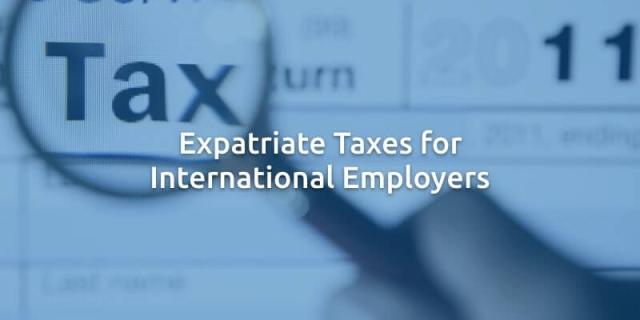In a previous article, we laid out the complexities associated with the common practice of expat hiring for international businesses. Now, we’re going to focus specifically on expatriate taxes. If you’d rather import one of your domestic employees into your target country instead of hiring a local national, it’s important that you weigh the costs of taxes so your team member isn’t hit with a hefty financial burden.
Expatriate taxes are a beast of their own. These employees are citizens of your domestic country, but technically earning an income in a foreign country; that opens up the question of which country gets this employee’s tax dollars. Let’s look into this issue.
Tax Equalization for Expat Hiring
Tax equalization is a company policy that balances out US taxes with foreign taxes and the liabilities associated with both. It’s established by an employer and a practice that firms should have in place. But, for many small to midsize companies, it’s something that’s not on the top of their list.
Why is Tax Equalization Important?
Tax equalization ensures that your domestic employees have the same, or close to the same, tax burden as if they remained in their home country. Essentially, it protects your employees from financial burdens that would otherwise be associated with an international assignment.
How Does a Company Employ Tax Equalization for an Expatriate?
As the employer, you take responsibility for funding the expat’s home and host-country tax liabilities by collecting hypothetical tax from them. These policies are going to vary from industry and company, and you should seek the advice of an expert to determine that best way to employ this strategy.
What are the Benefits of Tax Equalization?
The benefits directly affect your potential, or current expatriates. It makes their tax burden virtually equal for every international assignment they take on. It also provides employees with decent cash flows through the payment of hypothetical taxes.
Also, it reduces your risk of non-compliance in both the US and your host country because you’re paying the employee’s tax liabilities. In all countries, if you pay taxes on time, you’re usually in pretty good shape.
Tax Totalization for Expat Hiring
The second aspect of understanding expatriate taxes is the idea of tax totalization. This subject is essentially government treaties related to income tax, pension withholdings, and social security contributions.
The United States established agreements, known as Totalization Agreements, with several nations to help expats avoid the double taxation of income in regards to social security taxes.
How Does Tax Totalization Benefit Expatriates?
Employees based in the US, who work in an international market, are taxed at a reduced rate, or exempt from foreign taxes altogether, on specific items of income if the US has an established treaty with the country. Mostly, these agreements save expats from double taxation.
If the treaty doesn’t cover a specific income earned by the expat, or a convention doesn’t exist with your target market and the US, the expat must pay taxes on their income based on the rates and instruction from their US and foreign tax returns.
[divider line_type="Small Line" custom_height="30"]
For help determining if hiring an expat is the best option, reach out to our team of international consultants. Their expertise can lead you down the right path!



